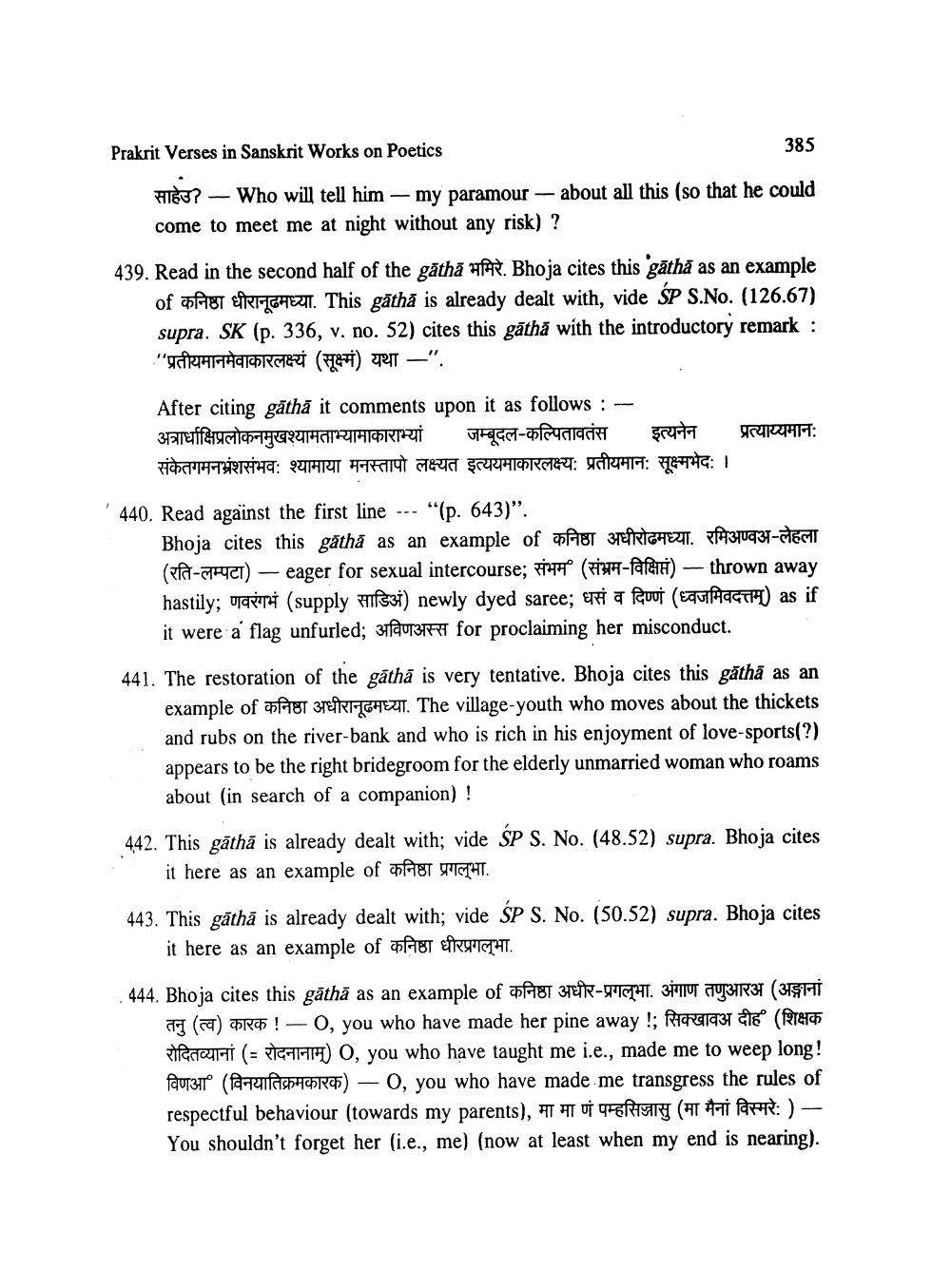________________
Prakrit Verses in Sanskrit Works on Poetics
385
साहेउ? -Who will tell him-my paramour-about all this (so that he could come to meet me at night without any risk) ?
439. Read in the second half of the gāthā HAT. Bhoja cites this gāthā as an example
of कनिष्ठा धीरानूढमध्या. This gatha is already dealt with, vide SP S.No. (126.67) supra. SK (p. 336, v. no. 52) cites this gāthā with the introductory remark : "प्रतीयमानमेवाकारलक्ष्यं (सूक्ष्म) यथा -".
After citing gāthā it comments upon it as follows : -- अत्रार्धाक्षिप्रलोकनमुखश्यामताभ्यामाकाराभ्यां जम्बूदल-कल्पितावतंस इत्यनेन प्रत्याय्यमान: संकेतगमनभ्रंशसंभव: श्यामाया मनस्तापो लक्ष्यत इत्ययमाकारलक्ष्य: प्रतीयमान: सूक्ष्मभेद: ।
'440. Read against the first line ... “(p. 643)".
Bhoja cites this gatha as an example of कनिष्ठा अधीरोढमध्या. रमिअण्वअ-लेहला (रति-लम्पटा)-eager for sexual intercourse; संभम (संभ्रम-विक्षिप्त)-thrown away hastily; णवरंगभं (supply साडिअं) newly dyed saree; धसं व दिण्णं (ध्वजमिवदत्तम्) as if it were a flag unfurled; अविणअस्स for proclaiming her misconduct.
441. The restoration of the gāthā is very tentative. Bhoja cites this gāthā as an
example of 18 3TERIGHEZIT. The village-youth who moves about the thickets and rubs on the river-bank and who is rich in his enjoyment of love-sports(?) appears to be the right bridegroom for the elderly unmarried woman who roams about (in search of a companion) !
442. This gātha is already dealt with; vide ŚP S. No. (48.52) supra. Bhoja cites
it here as an example of कनिष्ठा प्रगल्भा.
443. This gāthā is already dealt with; vide ŚP S. No. (50.52) supra. Bhoja cites
it here as an example of कनिष्ठा धीरप्रगल्भा.
444. Bhoja cites this gatha as an example of कनिष्ठा अधीर-प्रगल्भा. अंगाण तणुआरअ (अङ्गानां
तनु (त्व) कारक ! -0, you who have made her pine away!; सिक्खावअ दीह (शिक्षक रोदितव्यानां (= रोदनानाम्) O, you who have taught me i.e., made me to weep long! विणआ (विनयातिक्रमकारक) -0, you who have made me transgress the rules of respectful behaviour (towards my parents), मा मा णं पम्हसिज्जासु (मा मैनां विस्मरे:)You shouldn't forget her (i.e., me) (now at least when my end is nearing).




